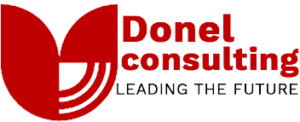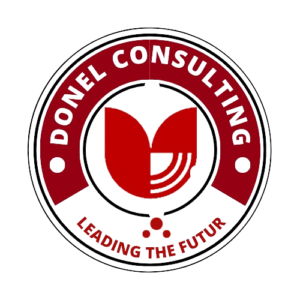Public Health
Here are the key services we provide :
Public Health Policy Analysis and Development
Donel Consulting helps clients develop effective public health policies by analyzing the current policy landscape, identifying gaps, and crafting evidence-based recommendations.
Our team of experts leverages local knowledge and global best practices to ensure policies are tailored to the specific needs of the community.
Health Promotion and Disease Prevention Strategies
We design and implement health promotion and disease prevention strategies that empower individuals and communities to adopt healthy behaviors.
Our approach combines awareness, motivation, skills, and opportunities to create comprehensive frameworks for health promotion.
Emergency Preparedness and Response Consulting
In the event of a disaster or public health crisis, Donel Consulting provides expert consulting services to ensure effective emergency preparedness and response.
Our team helps clients develop contingency plans, manage grant funding, and navigate regulatory compliance to minimize the impact of disasters.
Program Evaluation and Impact Assessment
Donel Consulting offers rigorous program evaluation and impact assessment services to help clients measure the effectiveness of their public health initiatives.
Curriculum Development for Public Health Education
We develop curricula for public health education, engaging and effective educational materials that promote healthy behaviors and empower individuals to take control of their health.
Get insights from our previous missions
Digital Health in Africa: A Boon with Ethical and Legal Considerations.
Across Africa, a digital revolution is transforming healthcare. Mobile technology, telehealth platforms, and innovative apps are bringing essential medical services to remote areas, improving access to diagnostics, and empowering patients. This surge in digital health solutions offers immense potential to address longstanding healthcare challenges in Africa, fostering a healthier and more equitable future for the continent. However, this digital health boom is not without its complexities. Ethical considerations arise regarding data …
Migration is a complex phenomenon with significant health implications.
Large-scale population movements, both within and across borders, represent a defining demographic trend of the 21st century. While migration offers economic and social benefits for both sending and receiving countries, it also presents significant challenges for public health systems. Migrants often face unique health vulnerabilities, including exposure to new infectious diseases, disruptions in preventive care, and mental health stressors associated with displacement and adaptation.
Why Evidence Often Loses to Politics in African Public Health.
Despite the power of scientific evidence, political considerations often trump data-driven solutions in African public health. This report investigates the reasons behind this phenomenon, exploring the complex interplay between politics, cultural beliefs, and the implementation of evidence-based public health strategies in Africa.
The need to address health concerns alongside urban development.
Cities are booming, but are they good for our well-being?
Is it possible to design cities that promote well-being and prevent future health problems?
Investing in the health of Africa’s youth is not just a moral imperative, but a strategic investment in the continent’s future.
When Words Matter : Navigating Ethnicity and Language for Effective Public Health Messaging.
The critical intersection of ethnicity and language, exploring how to tailor public health messaging for maximum reach, understanding, and impact across diverse populations.
Rural vs. Urban Mentalities: A Clash in Healthcare Approaches
Rural and urban life are worlds apart. Should healthcare follow suit? Is our current, often urban-centric approach missing the mark for rural communities? This sparks a debate: Do we need to tailor healthcare to different ways of life, or can we find a universal approach that works everywhere?
Vaccines, Jobs, and Vitality: The Power of Local Manufacturing for a Healthier Africa.
The healthcare landscape in Africa demands a new generation of medical professionals equipped to address the continent’s unique challenges. This study sheds light on a critical gap: the shortcomings of traditional medical education in preparing graduates for the realities of rural and community healthcare delivery. By fostering a curriculum that prioritizes practical skills, community engagement, and public health awareness, medical education can be transformed into a powerful tool for strengthening healthcare systems and improving health outcomes across Africa.
The role of tribal leaders in fostering trust and community buy-in for public health interventions.
Public health interventions often grapple with the challenge of securing community trust and participation.
Africa faces not only a shortage of healthcare workers but also a mismatch between skillsets and service needs.
Factors influencing healthcare worker motivation and retention, particularly in underserved areas.
How Africa Can Advance UHC Despite COVID-19’s Setbacks.
The COVID-19 pandemic undeniably strained healthcare systems across the globe, and Africa’s pursuit of Universal Health Coverage (UHC) was no exception. This insightful report explores how African nations can navigate these setbacks, identify innovative solutions, and reignite progress towards achieving UHC for all their citizens.
More Than Medicine: How Pharmacists Can Revolutionize Healthcare Delivery.
Why Evidence Often Loses to Politics in African Public Health.
PPPs for African Public Health : Donel Co.’ Strong regulatory frameworks and oversight mechanisms to ensure transparent Governance and Accountability.
Can We Translate Health Policy? Why Africa Needs Custom-Made Solutions!
The challenges of adapting existing models and argues for the development of custom-made health policy solutions specifically tailored to the African continent.
Even when evidence exists, translating research findings into actionable policies can be challenging.
Policymaking processes, inherently complex and multifaceted, necessitate careful navigation through labyrinthine bureaucratic structures, stakeholder interests, and political considerations, which can significantly impede the seamless integration of scientific insights into practical governance frameworks.
PPPs for African Public Health : Effective governance structures serve as linchpins in harmonizing disparate stakeholder interests, mitigating potential conflicts between profit-driven motives and equitable healthcare provision, and fostering an environment conducive to sustainable, long-term collaborations that genuinely benefit underserved populations
When the Earth Shifts : How CBPHC Can Adapt to Climate Change’s Health Impacts
Climate change is a health equity issue, with vulnerable populations facing greater risks and fewer resources to adapt. CBPHC must include a health equity approach to address disparities and injustices exacerbated by climate change.
Data Doesn’t Sleep: Africa CDC’s 24/7 Watch on Public Health.
Different financing models for CBPHC programs to ensure long-term sustainability.
Social Health Insurance (SHI)
SHI has been identified as a viable option for boosting domestic financing for health, offering stable funding and equitable access to health care
To Rethink National and Regional Responses to Global Health Challenges.
Fragmented efforts and siloed interventions have proven inadequate in addressing complex, interconnected health issues exacerbated by climate change, urbanization, and globalization, underscoring urgency for innovative governance frameworks and financing mechanisms that foster cross-sectoral cooperation and knowledge sharing.
Health is deeply intertwined with a complex array of social and economic factors, collectively known as the social determinants of health (SDOH), which profoundly shape individuals’ opportunities to lead healthy lives.
A recognition of the need for more qualified healthcare professionals across Africa.
Africa faces a projected shortage of 6.1 million health workers by 2030, a 45% increase from 2013, according to a WHO study. The region has a ratio of only 1.55 health workers (physicians, nurses, and midwives) per 1000 people, far below the WHO threshold of 4.45 per 1000 needed to deliver essential health services.
A Look at Africa’s Underfunded Healthcare Crisis.
Despite the 2001 Abuja Declaration commitment by African Union countries to allocate at least 15% of their national budgets to healthcare, the vast majority have fallen far short of this target.
Innovative Financing for African Health with Local Control
The traditional funding models for healthcare in Africa may not be sufficient for the continent’s evolving needs. This study explores innovative financing mechanisms that can support Africa’s health priorities. The key challenge lies in securing sustainable funding streams without compromising ownership of healthcare systems by African nations themselves. Striking this balance is crucial for ensuring long-term healthcare security and improved health outcomes across the continent.
Designing Partnerships for African-Led, Equitable Health Resource Allocation.
Monitoring a New Sickle Cell Disease Management Program in Uganda
Building on Uganda’s established leadership in sickle cell disease (SCD) management, Donel Consulting’s monitoring project aimed to evaluate the effectiveness of a newly implemented SCD program.
Africa seeks greater control over its health agenda, prioritizing its specific needs and contexts.
Regional Health Security Mechanisms : The importance of regional health security mechanisms has been reinforced, allowing for agile and contextualized responses to global health issues. Several continental mechanisms were created and operationalized, such as the Africa Joint Continental Strategy for COVID-19, African Vaccine Acquisition Task Team (AVATT), and the Partnership for African Vaccine Manufacturing Initiative (PAVM)
Africa’s healthcare landscape has historically been characterized by a dependence on external resources and a reactive approach to health challenges.
The New Public Health Order emerges as a potential paradigm shift, fostering self-reliance through local manufacturing of health technologies and strengthening public health institutions.
But translating this ambitious vision into reality will require navigating complex challenges, including infrastructure development, capacity building.
Leveraging Data Analytics for Predictive Modeling and Resource Optimization in Combating AMR in Africa
The emergence of Antimicrobial Resistance (AMR) poses a significant threat to public health in Africa. This challenge necessitates a comprehensive approach that combines predictive modeling and resource optimization. Data analytics plays a crucial role in this endeavor by enabling the identification of patterns and trends associated with AMR.
Strengthening Surveillance Systems
Effective AMR surveillance systems are crucial for monitoring resistance trends and generating data to inform interventions. However, African countries face challenges such as lack of funding, weak laboratory infrastructure, and inadequate trained personnel for AMR surveillance.
Optimizing Staff Scheduling in Emergency Departments as a Simulation-Based Approach to Reduce Wait Times
The Future of Rural Healthcare: Building Sustainable Delivery Models Through Community Partnerships
Rural healthcare disparities require innovative solutions. Donald Consulting fosters community partnerships to build sustainable healthcare delivery models that address the unique needs of rural communities

